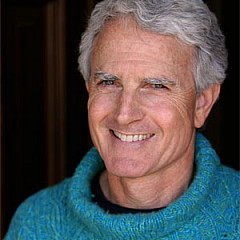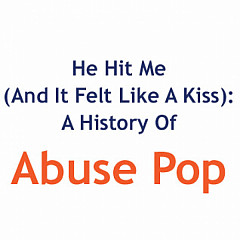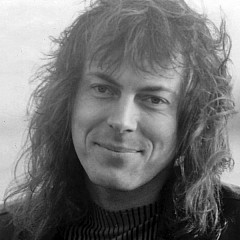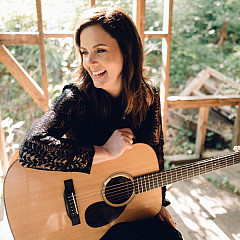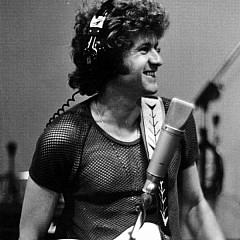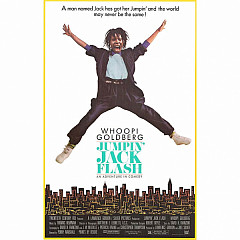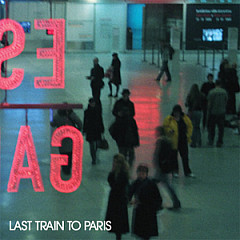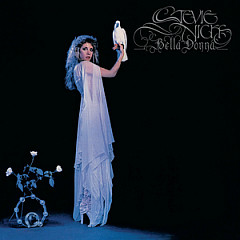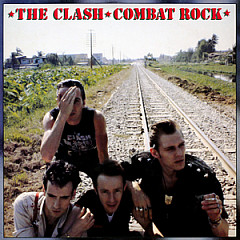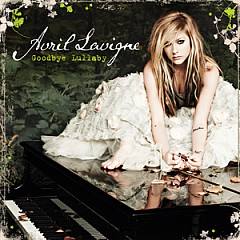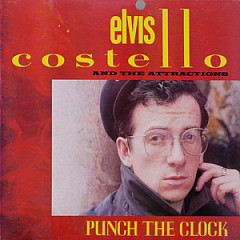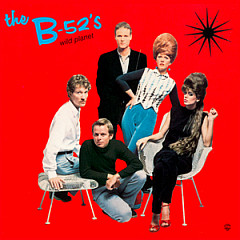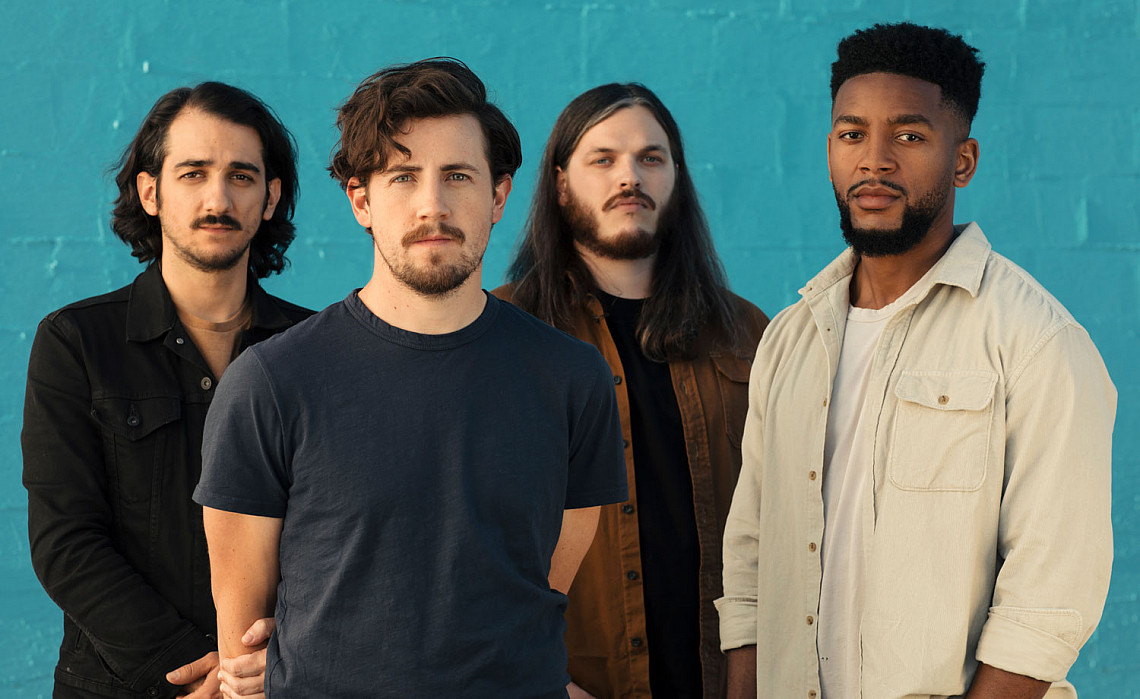
In this episode of the Songfacts Podcast, we have three members of the group: Jon Moon (bass), Mike Marcagi (lead vocals) and AJ Yorio (guitar). They give details of that RV tour and also explain what they learned from Auerbach and from their producer, Simone Felice, a member of The Felice Brothers who has also produced Lumineers and Avett Brothers.
Writing "Don't Walk Away" With Dan Auerbach
Mike: Yeah, we've learned a crazy amount of things with Dan. That was the first time we had ever done a writing session with someone, so we never really knew how the whole writing session thing worked. We showed up to his studio and the next thing you know he's like, "Yeah, I've got a good buddy coming in." And his buddy that came in was like 95 years old and played on Elvis records, like actual Elvis records.But we learned a lot. Like how the industry works and how the songwriting thing works, but also, we were face-to-face with two of the most prolific songwriters that have ever lived, watching them work and watching how their brains operated and how they viewed a song. That was, eye-opening for us.
When we write music, it always starts out, no matter what, like a weird phone idea, and then we bake that in our basement songwriting oven for a month. But Dan was like, "Hey, let's write a song in an hour before lunch."
Writing A Song In One Hour?
AJ: It was song, melody, lyrics, start to finish, all the aspects of a song you would need to go into a studio and record it, done in an hour. The songs were great. It was just a completely different approach. We'd put all of our melodic ideas together and just power through. Whatever doesn't work, we throw away immediately. There were no egos in the room. You never felt offended if you suggested something and Dan was like, "No, that's not going to work." We just moved through the songs and some stuff stayed and whatever didn't we'd just leave on the road.Mike: I'm sure that Dan thought critically about his songwriting technique, but it was almost as if, "Yeah, let's write a song in two hours because later tonight I got places to be and I got records to record."
Creative Restriction
Mike: I went to art school before I joined the band, and something I learned there was, you do usually yield a pretty great result if you put some sort of limitation on yourself. If you have to fight against something, that's usually when your brain works a little better.Working With A Producer For The First Time
Mike: We had made a couple of... I guess you could call them albums, when we were younger, but that was mostly us scrounging up all of the money we could gather as young 20-year-olds and just paying our way down to a random studio in Nashville or anywhere we could get into. But that was the first time we had ever been with a producer at that level, or a producer at all. Yeah, it was pretty crazy experience.AJ: Like Mike said, we were used to taking our songs, whatever we had created, and paying however much money we had in our bank account to record them. So there was really no obligation for whoever was recording those songs to cast the vision for the album or to take a fine comb through the songs. But with Simone and David [Baron, Simone Felice's partner], that was a super refreshing thing up in Woodstock. We were going to record the best possible version of all the songs that we were going to record, and we took as much time as we needed to get them ready and to get them to the point where they were much bigger and more refined than we would have ever tried to attempt.
Jon: It's a good point. When we first did our demos or albums or whatever, it was just a guy getting paid an hourly wage to record whatever the hell we told them to record, so there are some songs that I go back and listen to that we recorded like six years ago or whatever and they have four-minute-long intros of nothing but musical break, and then the singing happens, and then another four-minute thing of just music. It was cool and refreshing and also an insane learning experience to hear Simone and David be like, "Why do you guys have this two-minute solo with no singing? It'll sound better if we do this and add this." They're both so smart, so it was fun to hear their ideas.
Mike: Us three have been writing songs since the beginning. I've had the same guitar, John's had a bass and AJ's had a guitar, and that's what we've been limited to. In that studio we had access to different kinds of equipment and stuff that I didn't even know were instruments. I'm like, "What is that thing?" And David's like, "Oh, that's a synth from 1962." I would've never, ever in a million years known how to produce or recreate that sound for one of our albums.
So having access to different kinds of equipment and instruments was really, really cool too. I could've spent a month just fidgeting with every song.
AJ: The scary part is, at this point there was no record label. We didn't have any sort of deal, we just had a bunch of our own money invested into this record and we were just hoping that whatever we created was going to get picked up. We were just down there having fun, and then at night I would think to myself, "I hope somebody likes our fun."
Corey then asks the band members if they had any thoughts about the fact that many really good old band albums were being recording in that studio in the late sixties.
Recording In Woodstock
AJ: We recorded our record legitimately 100 yards away from Jimi Hendrix' old house that he lived in, in Woodstock.Mike: We were 20 minutes away from Big Pink. We went by that way a number of times. It was a pretty laid-back recording feel. It wasn't like, show up at 6:00 a.m. and we'd get started right away. We kind of like rolled in at 10 or 11 every day and would work until we got tired, which was fun. But every morning it would be like a field trip because we're just so obsessed with the town and the vibe of Woodstock that we would get up early in the morning and walk around. We'd be like, "Let's go see Big Pink, let's go see Van Morrison's summer home. Let's go down to the river."
It's a crazy, beautiful town, but - not to sound like cheesy or anything - it does feel like there is something special about it. It felt like we were in our own little world out there.

The Song "Desperate Days"
Mike: We wrote it right here on this desk that we're sitting on... pretty much at the beginning of the pandemic. It was our quarantine song. We wanted to write a song about that shared human experience that we were having with the globe, but we didn't want to be so on the nose. Our producer helped it come to life and become its own thing.AJ: Yeah, it came together pretty naturally. We didn't force that one at all.
I saw these guys literally every single day for two years. We would hang out every day and play music or whatever, and we still do. But then the pandemic happened and the next thing you know, I'm only talking to them over FaceTime and Zoom and stuff, and it was weird.
We were all just bored and not doing anything, so we started writing songs, and that one we just kind of started writing together over FaceTime and Zoom.
Jon: And six-foot distance.
AJ: It was funny because we didn't really need another song. We had 10 songs picked out for the album, but it kind of leapfrogged a couple other songs that were going to be recorded, so we cut one to add that one.
Simone really helped on that one too. We would FaceTime him and he had some good ideas for that song. We gave him the song idea, then he was like, "All right, I'll see you guys in 10 minutes." And then he would call us again and be like, "I just took a walk in the woods and I found a chorus."
Mike: That one just came naturally to us. And I'm glad 'cause it was really fun. And, David, the audio engineer and one of the producers - he was really, really excited about it because his dad was an audio engineer and a producer, and he worked with the Allman Brothers. David grew up in Ohio and he's like, "Honestly, since the day I turned eight years old, I wanted to be in a Southern rock band. I just wanted to shred the keys."
He's a great piano player, so he was really excited about it because out of all of our songs that one has the most raw rock and roll feel to it, which was fun.
Shooting The Video In Cincinnati
Jon: That video is a representation of how things were at that time. It was not a fun time.Mike: We were making a music video, which was fun. But during the filming of that video, it was still very much in the back of our head of like, "Are we ever going to be able to play a live show again?" We had just no clue.
AJ: And we didn't really know any better, which was frustrating, but also probably a blessing at the same time, because we released our first song, "Don't Walk Away," and then that might've been right around when the pandemic hit. So we were trying to break a band as the world was shutting down. We didn't know any different because we've never done it before, but we would get little glimpses, like our label would be like, "Oh man, this stinks this year, you guys gotta play on Zoom. If not, we'd fly you up to New York and you'd play a show and then we'd take you out to dinner." I'd be like, "Damn it, that sounds so much better than being in my basement and playing over Zoom."
The RV Tour
Mike: It was a lot of fun. It was our manager's idea. It was last summer and he was like, "Hey, I'm going to send you guys on the road, you're going to play a bunch of parking lots."AJ: Radio stations and venue promoters.
Mike: And they all loved it. We would play these shows for them and their friends... 10 person shows. It was kind of what a band normally had to do, just in a different way. Usually you go on tour as an opening band and you're playing for tables and chairs or five people. But this, we just forced the experience and we were like, "All right, where can we get five people and show up in their backyard."
Jon: One of the unforeseen benefits of that is we were showing up for two to three different houses a day, setting up our stuff, playing seven songs, eight songs, so in a given day we were playing these songs like 30 times, over the span of four or five weeks. So we got a ton of time to work through these songs live. It wasn't on a big stage or anything, but like, this is the first time we were playing these songs out live, so it was really great for us to get a ton of experience under our belt but not a whole lot of pressure.
AJ: And to what you're saying, what's kinda cool is that the RV tour ended and culminated in our first real big show where we played with Fitz And The Tantrums on a giant stage at a drive-in concert. I feel like that was a turning point. It was like, here's your last true pandemic show, now you've got to get ready to do this with real crowds.

Songwriting
Mike: We all have different backgrounds that we bring to the songwriting table and it just kind of works with us three. Simone, and even Dan, have really forced into our brains just how strong and memorable a good melody can be. We identify so hard with that - if you can write a good melody, you can write a good song that can stick in your head. So we're always looking for that really memorable melody or chorus that you can hold onto forever.One of the first things we ever did with Simone, we met him and he drove us around in his car and he just blasted the radio. He said, "I don't care what you guys think of this song, I don't care what you guys think of this band, this song - you can play it on an acoustic guitar and everybody knows the words and everybody knows the chorus. He played "Wonderwall" and "Don't Look Back In Anger" from Oasis. And we're singing it and screaming it. He had a good point.
Jon: Like, forget about your ex-girlfriends, forget about any weird girls this makes you think of, just listen to the melody.
Mike: There are simple songs that you can play on an acoustic guitar but you can go play them for 40,000 people in an arena and everyone will sing them back. We're just attracted to writing awesome melodies that people can sing along with and identify with and remember for a long time.
Getting Weird With Their Songs
Mike: I feel like when we first started writing songs, AJ would always be the guy that would be like, "I want to get weird." We still need that in our band. But he's the experimental guy who's like, "Dude let's stick it to the man and not have a chorus."AJ: I don't think I've ever said that. I listened to a lot of other sounds, like a lot of feedback and ugly-sounding noises, but I think what unites us all is that at the core, we all like to write catchy melodies.
Mike: Simone even sat us down one day and said, "We have the ability to write big songs, so let's try to write big songs. Let's try to make a song that people sing along with in the same way they sing along with 'Mr. Brightside' or something."
The Song "Wildfire"
Mike: The idea for this song came to us by our producer. He was like, "Hey, here's an idea that never got finished. I think it's gonna disappear from the earth forever."So the story of this song, it was really just a collaboration. It was so many different people writing and putting it together. It wasn't until the very end after it was recorded that we started to think about the lyrics, so it definitely is one of those songs where the story of the lyrics can mean whatever you want them to, to yourself.
But the story of the song was kind of a wildfire. It started out as an idea and then it just sort of consumed the studio for the day and we just went wild with it.
It was the most fun song to record. It had all of our favorite things all wrapped into one. I love singing this song because out of all of our songs that just has the biggest chorus that you just want to sing along with.
If you listen, AJ is playing this really dirty slide guitar that was sent through this crazy amp and a couple weird pedals in the studio, and it came out really, really cool. And Jon's playing this humongous bassline.
AJ: We got this huge, old fuzz pedal and an octave pedal. The fun thing about this song was getting to hear it back in the studio with each added layer. From the very beginning we were all kind of in awe of the song, and we were like, "Man, this is really turning out spectacular." And then every layer that got added and every track that we added, every instrument we put on the song, just upped the ante. It was just like, "I didn't think this could get any better."
November 4, 2021
Subscribe to the Songfacts podcast, part of the Pantheon Network
More at theheavyhours.com
Photos: Jess Williams (1,3); Jenise Jensen (2)
More Songfacts Podcast

